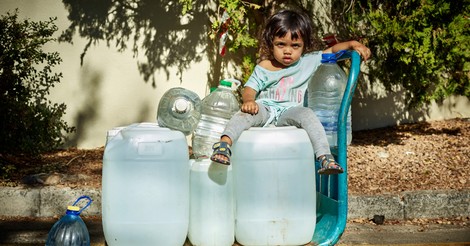Your podcast discovery platform
Curious minds select the most fascinating podcasts from around the world. Discover hand-piqd audio recommendations on your favorite topics.

piqer for: piqd Boom and bust Climate and Environment Global finds Globalization and politics Health and Sanity Technology and society Doing Good Deep Dives
Malia Politzer is the executive editor of piqd.com, and an award-winning long-form journalist based out of Spain. She specializes in reporting on migration, international development, human rights issues and investigative reporting.
Originally from California, she's lived in China, Spain, Mexico and India, and reported from various countries in Africa, Europe and the Middle East. Her primary beats relate to immigration, economics and international development. She has published articles in Huffington Post Highline, The Economist, The Wall Street Journal, Vogue India, Mint, Far Eastern Economic Review, Foreign Policy, Reason Magazine, and the Phoenix New Times. She is also a regular contributor to Devex.
Her Huffington Post Highline series, "The 21st Century Gold Rush" won awards from the National Association of Magazine Editors, Overseas Press Club, and American Society of Newspaper Editors. She's also won multiple awards for feature writing in India and the United States.
Her reporting has been supported by the Pulitzer Center on Crisis Reporting, The Institute For Current World Affairs, and the Global Migration Grant.
Degrees include a BA from Hampshire College and MS from Columbia University Graduate School of Journalism, where was a Stabile Fellow at the Center for Investigative Journalism.
A Surprising Unintended Consequence Of Cape Town's Drought: Unity And Cooperation
This Huffington Post Highline piece is a beautiful read, both for the reporting and writing, and also the overall message of optimism it imparts.
Most people will have heard of Cape Town's count down to "day zero"—the day that the city runs out of water. Leading up to this cataclysmic day, most media pundits (and even the local government) predicted utter chaos. The fact that water was running out in a city known for a history of extreme racial tension only made predictions more dire.
However, when reporter Eve Fairbanks traveled to Cape Town to see how residents were managing the impending apocalypse, what she found was quite the contrary: People were coming together, across economic and even racial lines, to conserve water and try to find some sort of solution: Voluntary water usage plummeted, and it soon became a badge of honor to "show a visitor day-old urine ripening in your toilet."
She describes residents of Cape Town's behavior as a "beautiful social experiment."
It could be that human beings are just waiting for something that gives them a challenge, a chance to rise above their politics-exhausted cynicisms and prove they can be good neighbors, stand for more than just money and success, and find ingenious tricks, together, to outwit their new tormentors. It could be that certain kinds of disasters—particularly the natural, which feel more neutral and acceptable than politically driven ones—may wedge open spaces for change in other areas in which we feel stuck.
This excellent piece about how Capetonians came together—and what their cooperation achieved—is definitely worth a read.
